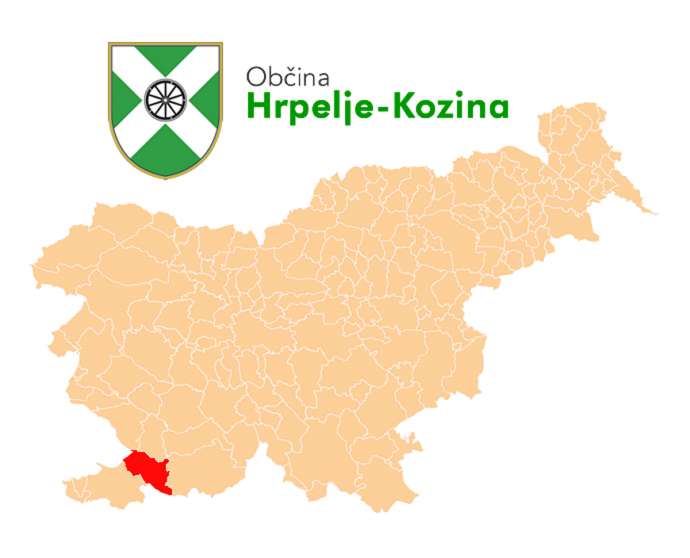STA, 25 May 2020 - An incident involving a dual citizen of Slovenia and Italy who was stopped at gunpoint by a uniformed man, allegedly a member of the Slovenian Armed Forces (SAF) patrolling the border with Italy, occurred in the Hrpelje-Kozina municipality in early May, Primorski Dnevnik reports. But SAF says no soldier was in the area back then.
The Trieste-based Slovenian newspaper provides an account by a 32-year-old dual citizen with temporary residence in Slovenia, who was taking a walk with his girlfriend in the woods above the Glinščica valley.
In a moment when he moved slightly away from the partner, he was approached by two men in military uniforms, one of whom demanded he immediately stop.
"I got scared. I didn't know what was going on. I thought it was some 'lunatic' playing solider. He ordered me to kneel down. He pointed an automatic rifle directly to my head," the man told the newspaper. Once the men in uniform heard him speak Slovenian, they apologised and let him go.
"It was a soldier of the Slovenian army. He was not a member of any kind of home guard. He explained that his colleague and him were looking for possible migrants who are crossing the border headed towards Italy in this area daily," he added.
Responding to the news report, SAF said on Monday it had contacted the Primorski Dnevnik journalist to learn the incident had taken place on 8 May near the village Mihele, checked the situation with the police, whom soldiers help patrol the border with Italy, but established that no SAF member had been in that area on that day.
SAF also explained that soldiers usually take part in patrols with police officers to patrol the border which consist of two soldiers and one police officer. The soldiers mainly support the police officer in performing his duties. This means they do not act on their own.
Earlier in the day Defence Minister Matej Tonin said SAF was checking what had happened, waiting for the police to provide the necessary information. It is the police that keeps the record of which patrol a solder is assigned to. He said it was in the interest of all for the incident to be cleared up, but indicated it could also be fake news.
MP for the Italian Democratic Party Debora Serracchiani has meanwhile already notified the Italian Foreign Ministry of the "news about worrying events on the Italian-Slovenian border", reported the Italian press agency Ansa. She said she would call on Minister Luigi Di Maio to demand an explanation from the Slovenian government.
Ansa also quoted the MP as saying "it would be unacceptable if there was substance to claims that armed members of paramilitary groups are moving close to our border".
While the Slovenian government is pushing for SAF to get certain police powers to help police on the border, Article 37.a of the defence act that would allow for this is presently not in force.
Article 37 states the army does not have police powers, while it "allows the Slovenian army to cooperate with the police in the wider protection of the border in the interior of the country's territory in line with plans and a beforehand decision by the government".
In mid-April, Interior Minister Aleš Hojs announced the government planned to nevertheless deploy soldiers if needed, using a different legislative provision that allowed a more limited form of deployment.
"In the event Article 37.a of the defence act is not activated, we will increase the number of SAF members on the border via Article 37," Hojs said then.
Activation of Article 37.a would allow soldiers to temporarily restrict the movement of persons and take part in crowd control along the border. The powers are granted for up to three months with the possibility of extension.
The debate about whether to put in force Article 37.a, written for and used temporarily during the 2015/16 refugee crisis, has been raising dust in Slovenia, as has the patrolling of allegedly unarmed uniformed groups, referred to as home guards. Legislation aimed to clamp down on them was drawn up under the previous government but voted down in March as the new government was being formed.
Meanwhile, the incident has drawn criticism from the opposition, with Matjaž Nemec of the SocDems calling on the defence, interior and foreign ministers to explain in detail the circumstances of the event and the legal basis for independent activities of the army along the border.
If those responsible fail to answer why the army was involved in the monitoring of the border with Italy, why it was not part of a mixed group led by the police, "such an international incident ... requires at least the resignation of the minister in charge", Nemec said.
Luka Mesec of the Left told the press the event was a reflection of the state desired by the Janez Janša government. He added the past months - seeing a substantial drop in the number of illegal border crossings and a reduced police workload due to the lockdown - showed there was no reason to activate Article 37.a.
"The only reason to activate Article 37.a is for the government to spread fear and evoke images some kind non-existent phantasmagoric adversaries," Mesec said.






